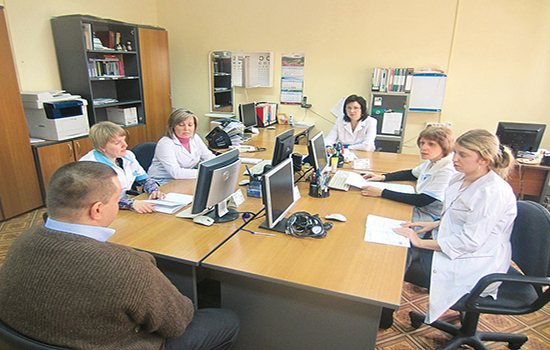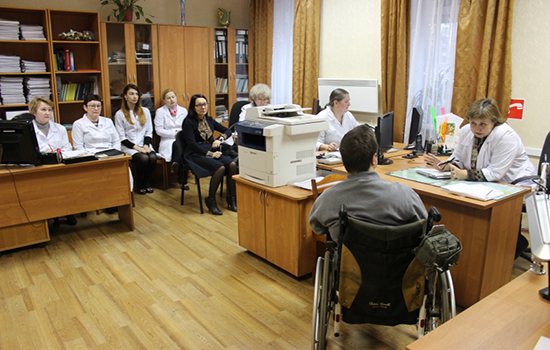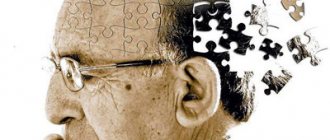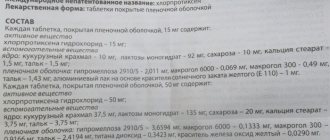Is Alzheimer's disease a disability?
The disease does not develop rapidly; the patient gradually becomes a helpless person, unable to live without the help of other people. This condition is characterized by the fact that he loses not only memory, but also basic skills. The sick person and his relatives have many associated problems: high material costs, organizing round-the-clock care, and psychological difficulties. In this case, care is carried out without the hope that there will be an improvement.
A special commission (ITU Bureau) assigns the appropriate disability group, considering individually the degree of those functional impairments of the patient that appear during the development of the disease. In this case, the degree of disability will be established for life. If the disease progresses, the group changes.
Bibliography
- ICD-10 (International Classification of Diseases)
- Yusupov Hospital
- Gavrilova S.I. Mental disorders in primary degenerative (atrophic) processes of the brain. // Guide to Psychiatry / Ed. A. S. Tiganova. M., 1999. T. 2.
- Medvedev A.V. Vascular diseases of the brain // Guide to psychiatry / Ed. A. S. Tiganova. M., 1999. T. 2.
- Korsakova N.K., Moskovichiute L.I. Clinical neuropsychology. M., 2003 (Chapter 5 “Neuropsychological syndromes in aging”).
More on the topic of NPF Hephaestus in 2020 address telephone numbers profitability ratings reviews of NPF ask a question
How to register a group and what documents are needed
The procedure for registering disability is multi-stage and consists of several stages.
- It is necessary to obtain a referral to undergo an MSE (medical and social examination). A written request for this referral is made at the clinic where the patient is being seen. In the request, it is necessary not only to provide as complete information as possible, but also not to forget about the means of rehabilitation necessary for the patient. The result can be expected within a week; the response from the clinic includes either a reasoned refusal or a referral to medical examination.
- A package of documents is attached to the referral. These are all the results of medical examinations of the patient (conclusions and extracts from doctors, fluorography, test results, ECG, etc.)
- There are cases when a relative is fully capable, but cannot collect certificates for various reasons. For example, my mother has early stage Alzheimer's disease, but she is in hospital treatment. Then you will need to issue a power of attorney, which must be certified by a notary. In cases where the patient was sent for treatment in a hospital, this document is drawn up at the hospital, with the chief physician.
- At the discretion of ITU specialists, the patient may be referred for additional examination to diagnose and clarify the condition. To pass the commission, an additional examination program will be drawn up.

If the clinic for one reason or another refuses a referral, relatives can contact the ITU to consider their issue independently, sending there only a package of documents.
Prices for diagnosing senile dementia

Senile dementia is a senile dementia that affects people in the older age group. The initial stage of the disease is manifested by forgetfulness, fatigue, and apathy. Later stages of the disease are characterized by the patient’s inability to take care of himself or perform simple actions. A person loses memory, changes in personality and intelligence occur - all these factors lead to disability.
Senile dementia is a disease for which the first disability group is issued indefinitely, without repeated re-examination. Permanent recognition of disability due to dementia is recognized two years after the patient is initially recognized as disabled. Recognition as a disabled person occurs after examination at a medical and social examination (abbreviated as MSE).
More on the topic Regional Maternity Capital in St. Petersburg 2020 description and conditions for obtaining the amount of family capital in St. Petersburg
Expert assessment - what is it?
When drawing up a conclusion, ITU specialists give their expert assessment based on an examination that includes several points:
- The general condition of the patient and the degree of physiological disorders are assessed.
- Doctors' opinions are analyzed based on the documents provided.
- The social and living conditions of the person who is applying for disability are examined.
- The patient's condition is examined from a psychological point of view.

What disability group is given?
The examination is also carried out in absentia, but only in special cases when a person suffering from Alzheimer's disease is not transportable. If there is a separate report that confirms his condition, the examination will be carried out at home or on the territory of a medical institution.
The grounds on which a person is recognized as disabled are reflected in an expert assessment, which takes into account the characteristics of the course of the disease.
- Persistent impairment of body functions due to disease progression.
- A person has completely or partially lost the ability to independently maintain and move.
- The patient lost orientation in time and space.
- The patient's communication skills are gradually lost.
- A person cannot control his behavior, which can lead to dangerous consequences for him and others.
- Disability.
- The need for constant care, as well as rehabilitation of the patient.
It is not recommended to leave a person suffering from Alzheimer's disease alone - he may harm himself.

In order for the ITU to assign disability status to a sick person, it is necessary for the commission to note several of the listed consequences of the progression of Alzheimer's disease. If the patient has not lost a critical attitude towards his condition, and the disease is at an early stage of development, then the commission will determine group II. Of course, the fact that, despite the patient’s non-critical condition, his condition will not improve, will be taken into account. The disease will progress.
Over time, when the prognosis becomes more unfavorable and the disease reaches a severe or moderate stage, disability group will be assigned to I. Since the person will need constant care and will not be able to cope without round-the-clock help from others. It must be borne in mind that rehabilitation and maintenance therapy with medications in this case are quite expensive. If there is a disability group of I, the patient and his relatives can count on receiving social support from the state. In this case, the period for re-examination is not established; disability group I for this disease is given for life.
To receive the benefits provided by the law of the Russian Federation, you need an extract of the inspection report. The document must be submitted within 3 days to the Pension Fund (branch at your place of residence). If the process is delayed, you will need to obtain new certificates again.
Guardian of a patient with dementia: rights and responsibilities
How does the situation change when a caregiver becomes a guardian?
Changes for the better:
- there are no problems with hospitalization in care units or placement in a boarding school;
- all medical documents, including extracts from hospitals and outpatient dispensary cards, are given to you (if problems arise, write an application addressed to the chief physician and request a refusal in writing);
- the patient’s pension is issued (to do this, you need to obtain a special document from the guardianship authorities to access the ward’s account).
Difficulties:
- an annual report to the district guardianship authorities (to report that the ward’s pension has been spent on him, you have to keep receipts for large purchases, for example, clothes, medicines;
- Having warned you, representatives of the guardianship authorities will come to your home to assess the patient’s living conditions, but if the house is clean, the patient is well-groomed, he has his own place to sleep, and there is food in the refrigerator, this visit does not cause problems);
- transactions that are related to the sale of the ward’s property are possible only with the permission of the guardianship authorities (for example, in order to sell the ward’s apartment, it is necessary to register in his new apartment an area no less than that which he owned in the old one, and prove that the new conditions are no worse than the old ones; usually for a family who sells a smaller apartment to buy a larger one, this is not possible).
Social assistance provided to disabled people of group I
Cash payments
If a citizen has not yet reached retirement age, then he is entitled to a monthly payment from the Pension Fund. In 2018, its amount was 2974 rubles, each year the EDV is indexed. Pensioners are entitled to a payment of 11,903 rubles. This amount also includes social payments.
If a citizen is declared incompetent, he is entitled to monthly compensation in the amount of 3137.6 rubles. Moreover, you do not need to report expenses for this amount. His guardians or trustees (appointed by the court) can receive payment for a group I disabled person.
Set of social services
A person can refuse a set of social services, then they will be replaced with cash payments.

For people with incapacity in 2018/2019, free services are provided:
- the right to travel in public transport (not taxis);
- medications with a doctor’s prescription, rehabilitation products in a state pharmacy (or they have the right to be issued by a pharmacy that has entered into a social contract with a medical institution);
- voucher to a sanatorium (treatment of the underlying illness, for a period of 18 to 42 days), with full compensation for the cost of tickets to the sanatorium and back;
- medical service;
- 50% discount on electricity and utility bills (except for telephone payments);
- discount on purchasing air tickets;
- dental prosthetics, followed by replacement of materials and related maintenance;
- social services (the need for the service is determined by the social protection body): care, consultations of a medical, socio-psychological nature, catering, assistance in funeral services, etc. These types of social support are provided both free of charge and with partial payment.
- — 50% discount on notary services;
Tax benefits, payment of duties
- 100% exemption from property tax;
- the tax base for land plots is reduced by 10,000 rubles.
- in case of filing a property claim in the courts of general jurisdiction and if the amount of damage does not exceed 1 million rubles, a group I disabled person is exempt from paying fees.
Benefits for persons caring for a disabled person
Care for an incompetent disabled person of group I can be appointed by the court both relatives and strangers (guardians). Persons caring for a disabled person are paid along with the pension they receive. Standard size of EDV is 1200 rub. (the amount is revised in regions with difficult climates, in accordance with the regional coefficient). If a guardian cares for several wards, then payment is due for each of them.

If social protection specialists do not prescribe this payment, then they take into account the fact that the guardians of a disabled person have additional income.
If a guardian has joint property with a citizen who has been assigned disability group I, then he has the right to additional benefits: receiving free vouchers for sanatorium and resort treatment, a 50% discount on transport tax, a reduction in land tax, and there are benefits on utility bills.
Collection of documentation
To assign the status of a person with disabilities, the guardian collects a number of documents:

The guardian will have to report on the spending of the ward's money!
If experts have found no reason to assign a person the status of a disabled person, the guardian receives a refusal document and applies to the Main Bureau of MSEC with it.
The refusal of this authority can only be refuted in court. Statistics show that this is rarely possible.
A person with disabilities receives stable financial support .
These include benefits, a discount on orthopedic equipment, easier conditions for taxes and utilities, and payment for mobile communications.









